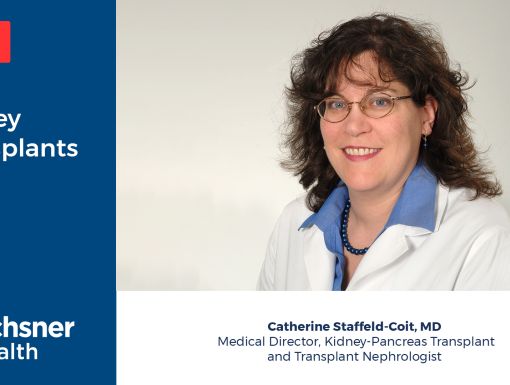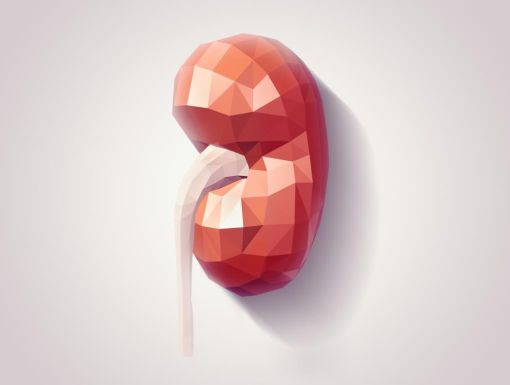
Kidney Failure Symptoms: 8 Signs to Watch For
Kidney failure, also known as renal failure or end-stage renal disease (ESRD), is a health condition that impacts the kidneys’ ability to filter waste, excess salts and fluid from the blood. This can cause dangerous levels of waste to build up in the body, leading to fluid retention, anemia and electrolyte imbalance. Ultimately, kidney failure can impact other areas of the body, like bone and heart health. Kidney failure can arise suddenly (known as acute kidney failure) or develop gradually over time (known as chronic kidney failure). Understanding the symptoms is important for timely detection and management.
Symptoms of kidney failure
While signs of kidney failure can vary depending on the cause, some common symptoms include:
- Changes in urination: One of the earliest signs of kidney failure is changes in urination. You might pass urine more or less frequently, or your urine might look foamy or have bubbles in it. This happens because your kidneys can't balance fluids and waste normally.
- Swelling: Kidneys play an important role in maintaining the body's fluid balance. When they fail, excess fluid can build up in the body, leading to swelling. Your hands, feet, ankles or face might feel swollen or puffy.
- High blood pressure: Healthy kidneys help control blood pressure. When kidneys fail, blood pressure may rise, leading to hypertension.
- Feeling tired or weak: As kidney function declines, waste products build up in the blood, leading to fatigue and weakness. Anemia, a condition affecting red blood cell count, is also common in kidney failure and can contribute to feelings of tiredness.
- Nausea and vomiting: You might feel nauseous, throw up or lose your appetite due to waste buildup in your blood. Over time, these symptoms can lead to malnutrition and weight loss.
- Shortness of breath: Because of the fluid imbalance related to kidney failure, fluids can also build up in your lungs. This can cause shortness of breath or difficulty breathing, especially when lying down.
- Chest pain or pressure: Chest pain or pressure could mean there is fluid in the lungs (known as pulmonary edema) or a change in your heart’s function.
- Confusion or altered mental status: Kidney failure can lead to a buildup of toxins in the blood, affecting brain function and causing confusion or disorientation.
U.S. News and World Report rates Ochsner Health as “High Performing” in kidney failure care. Learn more about our program at Ochsner at www.ochsner.org/services/nephrology
Is kidney failure reversible?
Short answer: It depends. If it's sudden (acute), it might be reversible with quick treatment. But if it's gradual (chronic), it's usually not reversible. However, there are treatments, even in someone with chronic kidney disease.
Because acute kidney failure is often caused by sudden injury or illness, treating the underlying cause, like dehydration or infection, can help the kidneys recover quickly.
On the other hand, chronic kidney failure, which develops with chronic kidney disease over months or years, is typically irreversible. However, early detection and treatment can slow the progression of the disease and help preserve remaining kidney function. Treatment may include medications to control blood pressure, manage complications and delay the need for dialysis or kidney transplantation. Diet, lifestyle changes, exercise and weight loss can also have a beneficial effect on kidneys and kidney function.
Treatment options
If you're in kidney failure, there are treatments that can help:
- Lifestyle improvements: Making changes to your overall health and well-being can benefit your kidneys. Eating well and exercising can improve blood pressure, help control blood sugar and reduce protein levels in your urine, which affect kidney function.
- Dialysis: Dialysis uses a machine to filter the blood and remove waste products and excess fluids like a healthy kidney could. Dialysis can be a life-saving treatment, but it does not cure kidney disease.
- Kidney transplant: If you’re in kidney failure, you may qualify to receive a new kidney. A kidney transplant involves replacing your failing kidneys with a healthy one from a donor.
- Medication: While medications cannot treat kidney failure directly, they are crucial in managing symptoms like blood pressure and slowing the progression of kidney disease.
What to do if you suspect kidney failure
If you have signs of kidney failure or have conditions like diabetes or high blood pressure that raise your risk, talk to your doctor. They can do blood and urine tests to check your kidney function and identify any underlying issues. In addition to seeking medical care, there are some steps you can take if you suspect your kidneys aren’t working at their best.
- Maintain a healthy lifestyle: Eat healthy (especially limiting salt and processed foods), exercise, manage your weight and avoid smoking and drinking too much alcohol. Improving your overall health can help protect your kidneys and prevent further damage.
- Manage other health issues: If you have conditions such as diabetes or high blood pressure that can increase the risk of kidney failure, it is important to keep them under control.
- Drink enough water: Drinking water can help support the kidneys in the removal of waste products. But don't overdo it. Talk to your doctor about how much is right for you.
- Follow doctor’s orders: If you have been diagnosed with kidney failure or are at risk, follow your doctor’s recommendations. Take your medications, go to check-ups and make the lifestyle changes your doctor suggests.
Kidney failure is serious, but knowing the signs and getting treatment can make a big difference.



